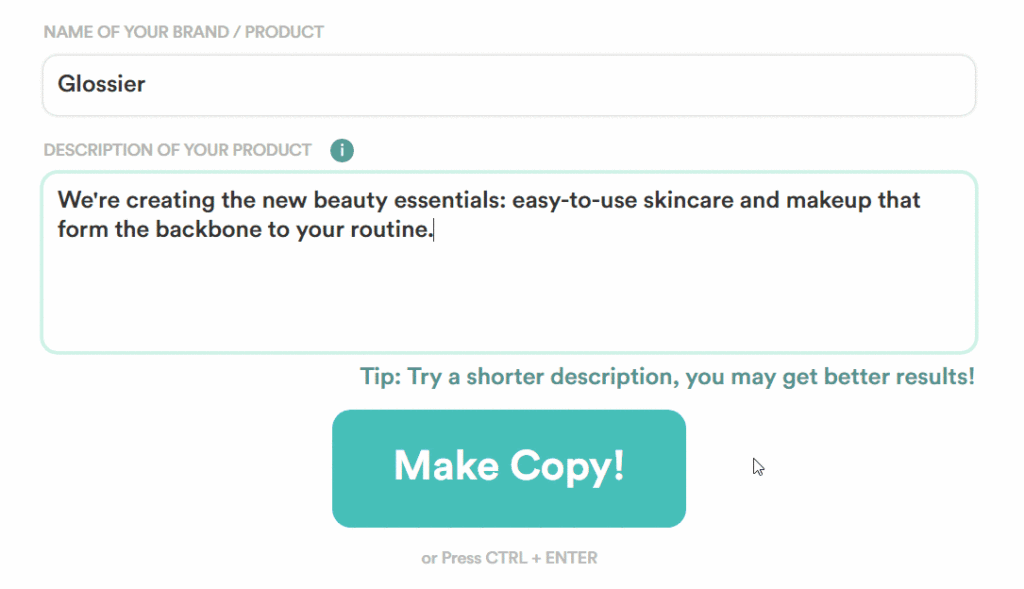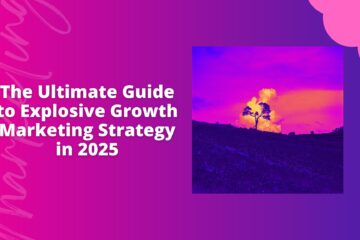
Is Artificial Intelligence Better at Marketing & Copywriting Than Humans?

Are you a marketing professional who has a fear of being replaced by artificial intelligence? You’re not alone. The release of GPT-3 has revived pre-existing anxieties about the potential impact of artificial intelligence on jobs – especially high-skilled white collar jobs – and highlighted what we can expect in upcoming months and years.
In this article, I aim to answer the question: should we really be worried about AI or is it something which is simply overhyped in its current form?
For a long time, plain, text-based writing has been the stepping stone for every copywriter. While this may be true, we live in an age where AI is growing and becoming more prevalent in our everyday lives. Brands and consumers are seeing tremendous benefits from this development–
OK, let’s pause here.
Because none of that was me. I didn’t write a single word of that introduction.
(Which makes me extremely happy because I hate writing intros and conclusions!)
I used a copywriting AI solution called Copy.ai to create that beautifully worded introduction to this post.
Want another taste?
Related Content: 5 Benefits and Uses of Marketing AI: Revolutionary Digital Marketing Trends
Overwhelmingly, as the information physicists of the ’80s already understood, our potential is unknown; just as the potential for Utopia and hell is unknown. This is why investors must do deep, unrelenting research; it is why the best of businesses get to outnumber all the humans who have ever done a half-decent job with their money.
Google’s advantage is that it is both the largest and fastest-growing data company. What we learn from search is easy to capture: humans do billions of searches daily. By the next decade I doubt that there will be anything new that we don’t already know; what we learn from it is more difficult to identify. I suspect that the distinction will be technical in content, just as the different zones of human experience are soundly represented by the healthy, the sick, the seedy, the intoxicated and the non-drinking. “Identifying the healthy” means collecting and using the information: optimizing for both the healthy and the sick.
👏👏👏
Wow!
That last bit was written by another copywriting AI platform that’s still in beta mode, HelloScribe.
Perhaps this puts into better perspective why some marketers are a little on edge about the increasing application of AI for copywriting purposes.
One marketer said the technology seems “abusive” to copywriters.
Artificial Intelligence and the Human Art of Creativity
These examples certainly signify the growing potential of bots to gain ground in an area we once believed to be uniquely human.
Writing.
Writing was once believed by most to be a creative art. And the arts help separate man from beast, or in this case, man from bot.
I mean, whether you realize it or not, you’ve interacted with marketing AI on an increasing basis over the last few years.


Grammarly. Google Ads. Uberflip. Drift.
All examples of how marketing AI currently makes marketing easier.
In May 2020 the introduction of GPT-3 (Generative Pre-trained Transformer 3) started people talking again in earnest about this topic.
I’ll try to keep this high level (I’m no scientist).
GPT-3 is a language predictor. The model uses machine-powered deep learning to take bits of language you feed it as a way of “teaching” to then produce human-sounding text.
It actually represents the third iteration of the GPT model created by OpenAI, an AI research lab based in California. (Microsoft acquired exclusive use of GPT-3 in September 2020.)
And people expressed shock at how powerful it was.
It can be used to write songs, essays, simulated emails from famous public figures, content for multiplayer games.

In fact, the Guardian published an entire article written by GPT-3 titled, “A robot wrote this entire article. Are you scared yet, human?”
And the researchers who released it say yes, we should be a bit scared.
They called for there to be studies around minimizing the potential harm, which they warned could include “misinformation, spam, phishing, abuse of legal and governmental processes, fraudulent academic essay writing and social engineering pretexting.”
Will AI Take Our Marketing Jobs?
But most marketers focus primarily on one thing.
Is artificial intelligence one step closer to replacing us? Are we soon to be out of jobs?
Paul G. Thompson, CEO at HelloScribe, says, “My view is that writing requires three distinct abilities; to think (or intuit), to write (the actual mechanics), and to judge (to know whether it is good or not).”
“Our goal is not to replace human intuition or judgement, but to make the mechanics – the first draft in particular – easier and more accessible.”
And Chris Lu, one of the entrepreneurs building Copy.ai, agreed, tweeting, “We’re firm believers in AI enhancing creativity for humans, not replacing them. We see a world where people will be able to use AI to save time and expand their creativity!”
So let’s all rest at ease for the moment.
While progress advances quickly, quite a distance still lies between where we now stand and the point at which we’ll all be passing entire copywriting assignments to a marketing bot.
For instance, I assigned HelloScribe’s copy generator to write something up around the term “AI copywriting.”
Related Content: Cause Marketing & Brand Trust: Communicating About Values & Politics
It spit back out a few paragraphs, including this gem:
Puddings obviously have something in common with computers. Puddings are formed of pure ingredients that exist independently from each other. They’re not copied together. They’re not edited together.
AI say what?
It continued further down with:
In short, use the robots for fashioning eloquent rants for our amusement, not for making them virtuosic musicians and as model soldiers. The latter could be useful, of course. But they could also damage our sanity.
Much better showing, I’d say.
But this still would require a heavy handed edit from an actual human copywriter.
While machines have come a long way since the release of GPT-3, AI is still far from replacing the marketing content we know and love and has a long way to go before it becomes an algorithm that can write content similar to what the best human writers produce.
(Copy.ai generated that last paragraph by the way.)
Related Content: 5 Benefits and Uses of Marketing AI: Revolutionary Digital Marketing Trends
So while there’s a long way to go, we might not be as far off as we’d hope.
That said, it wouldn’t hurt for forward-thinking marketers to shore up their strategic mindset rather than just focusing on technical skills.
Because while marketing AI continues to become more capable of doing marketing tasks, brands currently still need strategic direction on how, where and when to apply it.
It’s also our job to ensure marketing AI isn’t abused.
We now see how technology in the wrong hands can be weaponized to cause harm, such as the spread of misinformation, spam and bias. Just like with social media, artificial intelligence offers a powerful tool that needs to be treated with care to avoid negative impacts on the marketing industry and society as a whole.
Want to talk more about the intersection of technology and marketing? Connect with me on LinkedIn or sign up for my newsletter and get marketing insight delivered to you weekly.


